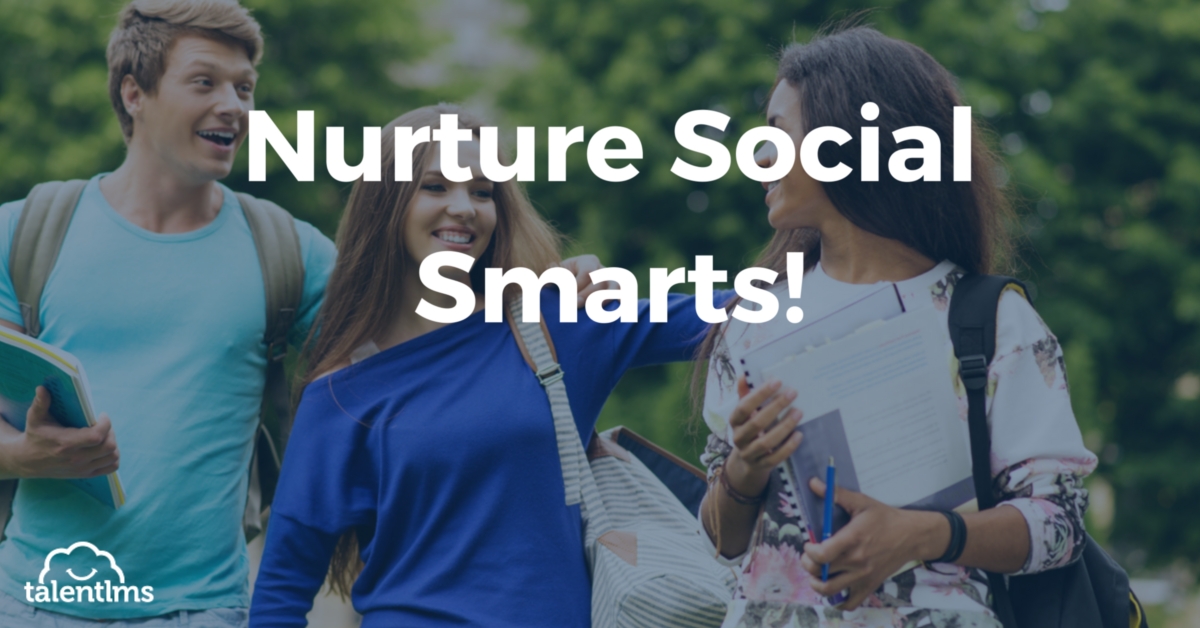Social intelligence, or SI, deals with situational awareness and meaningful interaction. A socially intelligent individual is able to work well with others and understand the dynamics within a group.
They can have a high degree of self-awareness, which allows them to use their confidence and insight to be a team leader and a team player. By immersing learners in social situations and encouraging them to examine their communication skills, social intelligence can be cultivated in online learning environments.
Basic Principles Of Social Intelligence
According to the Social Intelligence Institute, a research and education organization, Social Intelligence consists of four key principles. These principles should be the center of any Social Intelligence eLearning strategy:
1) Respect for others
Everyone has a different viewpoint or opinion. eLearning groups are, in many ways, a microcosm of society as a whole. You have people from various walks of life, with cultural and educational backgrounds that are wholly unique, coming together to achieve a shared goal.
As such, there should be an understanding that every learner deserves respect and consideration. Even in virtual learning environments where there is less face-to-face communication, each individual has feelings and thoughts that they are bringing with them when they attend the online courses.
2) Honor different perspectives
To possess social intelligence, we must first understand the “what” and “why” behind the perspectives of others. What is their belief or idea, and why do they hold this assumption? Every learner is viewing the situation from a different perspective, as they each have their own experiences, skills, talents, and insights.
Social intelligence does not necessarily require acceptance or understanding of an opposing viewpoint, but honoring the fact that we are all entitled to our own perspective.
3) Behavioral awareness
We all have the right to feel whatever we choose to feel. However, we must also be aware when automatic behavior comes into play. This behavior does not involve forethought.
We simply think or act based upon assumptions or ingrained beliefs. When we develop the ability to become aware of this automatic behavior, however, we can then modify these behaviors to achieve more desirable outcomes.
4) Effective decision making
Learners must comprehend that every aspect of their lives, including social situations, involves decision making. More importantly, every choice they make leads to consequences, both good and bad.
If we are working on a team to develop a project, we must make the decision to cooperate or work solo, to lead or to follow, to roll up our sleeves and jump into the process or stand on the sidelines.
4 Tips To Use Social Intelligence In eLearning
1) Develop collaboration exercises to build communication skills
One of the most important aspects of social intelligence is knowing how to communicate with others. You can help your learners develop their social skills by creating online collaboration exercises that place them in a team environment. This allows them to build their teamwork abilities, active listening skills, and conversational skills.
If they have an idea they would like to share, they will have to effectively articulate their online experiences and insights in order to be productive members of the group. They must also be able to listen to the thoughts and ideas of others to benefit from their personal experience and talents.
2) Use eLearning scenarios and simulations to encourage self-regulation
Self-awareness and regulation is a big part of social intelligence. eLearning scenarios and simulations give learners the opportunity to make choices and experience the consequences of those choices first hand, without any risk involved.
If they embark down a branching path that may lead to an unfavorable outcome, they have the ability to question how their emotions, ideologies, assumptions and other mental processes impacted their decisions. They can then modify their behaviors to achieve a desirable outcome and monitor their emotions more closely.
In many cases, learners soon discover they weren’t even aware that their feelings had such an effect on their performance.
3) Encourage online discussions that explore unique perspectives
Create online forums, social media pages, and course blogs where learners can meet and share their thoughts and opinions with their peers. Not only can they address questions or concerns they may have, but they are able to interact with others and view the topic from a different viewpoint.
This also teaches them the importance of showing respect for opposing perspectives and adhering to societal standards. In other words, they quickly learn what is acceptable in social situations and what is not. Set up specific netiquette rules that every learner must follow and stress the fact that everyone is entitled to their own opinion.
4) Focus on active listening skills
Effective articulation is essential, but one should never underestimate the importance of active listening. Active listening differs from hearing, in that the words are actually understood, processed, and reflected upon. It can be integrated into virtually any eLearning exercise.
For example, you can ask learners to paraphrase the main points after listening to a virtual presentation or participating in a group conversation. Provide reading passages that are followed by a series of online questions which test their comprehension, or have them develop a blog post that summarizes the main ideas of the online lesson.
Even asynchronous eLearning courses can become interactive and collaborative online experiences by using these social learning tips.
Just make certain to research your audience beforehand to gauge their tech-savviness, so that you can choose the right online platforms that are ideally suited to their needs.
Interested in learning more about social learning implementation? Read the article The Impact of Social Intelligence In eLearning to learn how Social Intelligence affects eLearning.

Smart Tips ! For more social intelligence videos and blogs also do visit http://www.socialigence.net/
Smart Tips ! For more social intelligence videos and blogs also do visit http://www.socialigence.net/
Amazing
slim belt